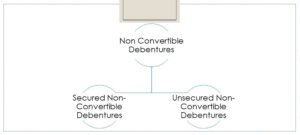Often, we read articles about Non-Convertible Debentures (NCDs) in newspapers and mobile news applications. What are these instruments? Why are they issued? What advantages does it have?
Well, lets start with the basics.
Debentures are financial instruments issued by companies and corporations to raise fund. These are debt instruments issued mostly with the intention to either finance its projects or to support the expansion of the company. Unlike Equity, holders of Debentures have no ownership or control over the company. But then, why would people in general subscribe to Debentures? Debentures carry a coupon rate, which is basically a fixed rate of interest. Holders of Debentures are entitled to fixed rate of interest for their investment for a specified fixed term period, known as tenure. It would therefore be apt to conclude that Debenture holders are creditors of the issuing company.
Many a time we notice people using the term Debentures and Bonds interchangeably. Debentures are in general unsecured loans. The do not have any collateral to back it up. Bonds are debt financial instruments too, however, it has a collateral or a physical asset to back it up.
Debentures can further be classified into
1. Secured and Unsecured Debentures
2. Registered and Bearer Debentures
3. Convertible and Non-Convertible Debentures
Focus as established earlier is on Non-Convertible Debentures.
Anyone can subscribe to NCDs as it allotted by way of public issue. As the name suggest, NCDs are instruments that can not be converted, but into what, you may ask. Into shares or equities of the issuing company. Issuing company is issuing a debt instrument, with no present or potential future ownership claim, through a public issue with the sole intention to raise fund. The interest assoiciated with the instrument can be paid monthly, quarterly or annually.
|
|
Companies that offer NCDs are given a credit rating by Credit Rating Agencies such as ICRA, Fitch, Crisil, etc in order or ensure that general public do not fall prey to any fraud and can take a rational decision. These ratings play an important role as it helps to understand how capable the company is to pay back its obligations.
Taxation of NCDs depends on factors such as the tax bracket of the subscriber, holding duration of instrument, etc. If an NCD is sold within a year, it will attract STCG otherwise LTCG.
Since these cannot be converted into shares, the instrument offers other benefits to make it appear more attractive to the general public.
Liquidity – NCDs are traded in the Secondary market much like Equity. Therefore, anyone who has subscribed can sell it in the secondary market. This ensures liquidity.
Interest – NCDs offer a higher rate of interest than Fixed Deposits and other similar avenues. This higher rate of interest can be accredited to the risk factor associated with the instrument. Since the subscriber assumes more risk, the reward is higher rate of coupon rate.
Fixed Income – NCDs offer a fixed source of income, with predetermined rate of Interest, tenure and capital protection.
Diversification – We all know why Diversification in respect of Portfolio is important (read : never put all the eggs in one basket)
Types of Non-Convertible Debentures
1. Secured NCDs – These debentures carry security in the form of asset back up. In case the company fails to fulfill its repayment obligations, the assets of the company can be sold to recover the amount. Therefore, its less risky.
2. Un-secured NCDs – these debentures have no asset back up. Therefore, the risk component is higher as compared to Secured NCDs. Therefore, its becomes imperative that the subscriber understands all the factors and makes a rational decision and doesn’t get blinded by higher rate of interest.


